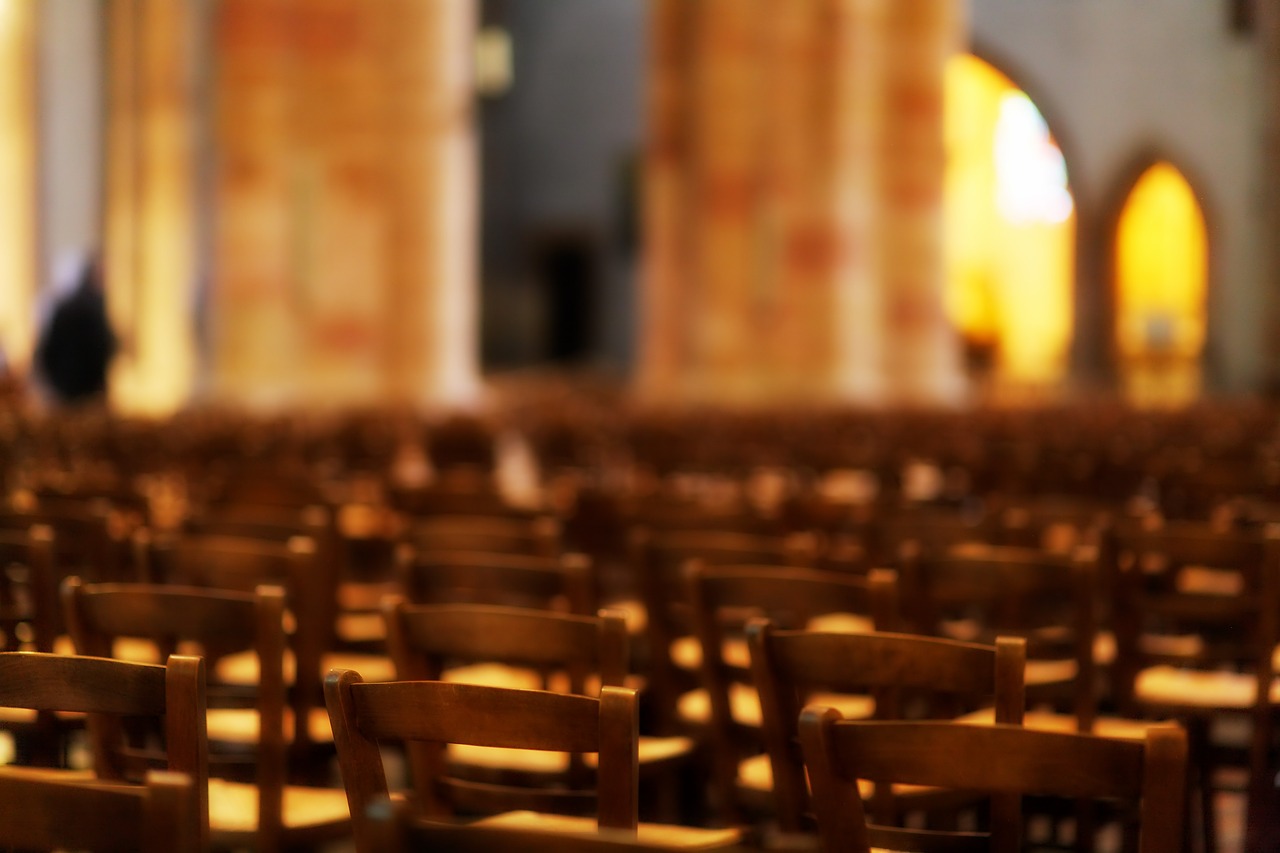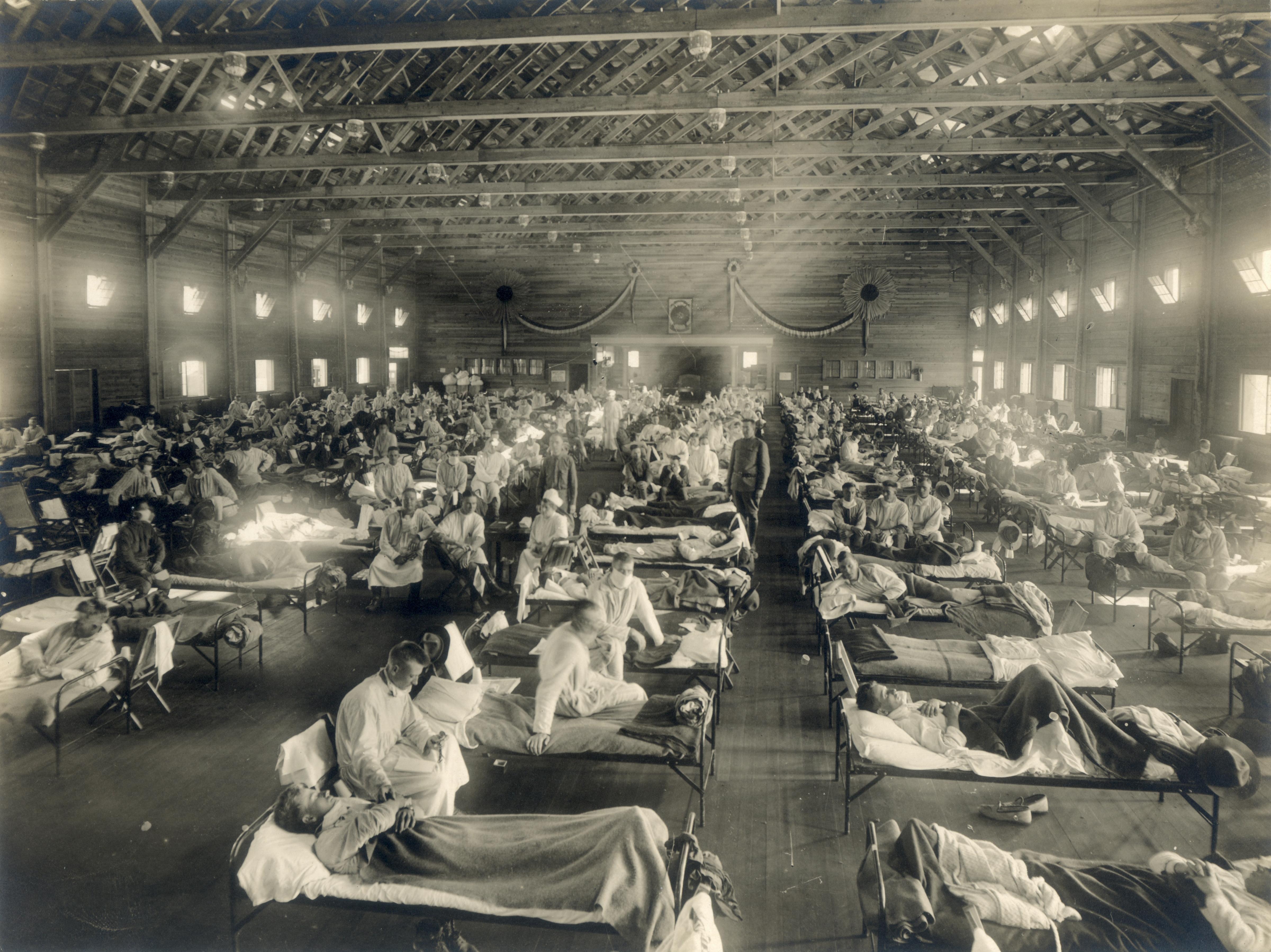He will build His Church
A pastor's response to a modern pandemic | guest post by Darren M. Lewis

Empty church by jplenio | Pixabay
I feel helpless. I feel that I am ignoring the basic tenets of charity and mercy as a believer. I feel overwhelmed by the situation and unsure of the future. When there is hurting, the Church rises to the occasion to lend comfort, prayer, and ultimately lead others to faith in Christ. Yet in a pandemic so much of the Church’s normal response is not allowed by health and governmental officials. In short, Christian ministry changed in the span of one week. I am at a loss. I am a pastor.
Church history shows that Christians were among the first to establish hospitals, orphanages, and education centers. This is beautifully highlighted in the book How Christianity Changed the World by Alvin Schmidt. Here in this present time, we sit unable to minister to the sick. In the early days of the pandemic, I wrestled with this. I asked myself if I should defy the government’s call for social separation so I could be with those in our congregation that were fearful. I struggled with the thought of moving away from on-campus worship. How would we perform the ordinances of the Church? There could be no communion as we are not allowed to pass anything. There could be no water baptism. You certainly cannot immerse with six feet between you.
For many such as myself, these are real and troubling questions that we must grapple with. In the end, I am reminded that God is not surprised by an epidemic nor is He incapable of advancing faith in Christ due to these restrictions. In fact, He has used these things to show that the Church is as active as ever in our world; as is His Spirit.
During the great flu pandemic of 1918-1919 our world faced an outbreak that was virulent, deadly, extremely contagious, and horribly swift. One observer noted, “By the time one Cape Town tram had gone three-quarters of its three-mile journey, it had stopped five times to deposit the bodies of passengers until eventually its driver also died.” This generation suffered greatly. Many estimate the World War I military dead were near 9.7 million people with an additional 10 million civilian deaths.

Soldiers ill with so-called Spanish flu at Camp Funston, Kansas | Wikipedia
Due to the horrible conditions of trench warfare, rotting bodies and animals in no man’s land, and very close quarters, the flu spread rapidly around the world. Post-Victorian England had many colonies world-wide: soldiers were sent from India, Pakistan, Bangladesh, Rhodesia, and South Africa, to name a few. As soldiers returned home they carried with them this terrible disease. Within this two-year span, the CDC estimates 50 million people lost their lives. Disillusion with life and with the atrocities of war led this generation to be called the Lost Generation. While Ernest Hemmingway became its poster child, C. S. Lewis and J. R. R. Tolkien represented a different way of coping with the issues raised by war. Why? Because in times of crisis the light of Christ shines brightly.
In the early days of WWI, waves of revival had swept the earth, giving many people hope and a renewed sense of purpose. It is only natural that at times of hopelessness many turn to Christ and His Church for comfort. From the Azusa Street revival (1906-1915) multiple denominations and fellowships began, and sent missionaries carrying a message of hope around the world. One can argue that God prepared his church for the Great War and the flu pandemic.
During the 1918-19 flu pandemic we imagine the church rising to the occasion, caring for the sick and dying. That is certainly true. Many religious workers gave their lives helping the sick and dying. In contrast, we must also see that many churches temporarily closed their doors. Social distancing was a way for the church to protect the vulnerable in society. They were without the means of electronic ministry we have today.
During the pandemic of 2020, churches have experienced a unique opportunity to give hope to a broader community. Amazing and creative openings presented themselves. Many made masks and mask holders for doctors and nurses. Providing food for first responders and essential workers opened many doors for ministry and showing the love of Christ. The church that I pastor made bleach and provided it to local food banks, civic organizations, ministry centers and to poorer communities throughout our city.
The media age in which we now live affords tremendous opportunities to respond to needs both physical and spiritual. Churches all across America report crowds two, three, and four times their normal weekend attendance. The first Sunday that most of our nation moved to fully online services, many online platforms crashed due to the sheer numbers of people seeking to participate. Our God is a creative God; as such He gives the gift of creativity to His followers. Though no church would ask to be out of their buildings during the holiest week of the calendar, this too worked for the good of Christ’s church.
As many of us now move back on campus, our sanctuaries are rearranged allowing for social distancing. Multiple services may be held as well as masks worn; sanitization stations abound, no offering plates or communion may be passed, and water baptism is still a hurdle to cross. In the mist of this dark moment in our history, the light of Christ has never shined brighter nor has His church been more active.
Jesus spoke these beautiful words of comfort to the Apostle Peter, “Now I say to you that you are Peter (which means ‘rock’), and upon this rock I will build my church, and all the powers of hell will not conquer it” Matthew 16:18 (NLT). For two thousand years the church has prevailed in times of persecution, peace, natural disasters, revival and pandemic. This is a great opportunity for every believer. With masks on and sanitizer in hand, Christ compels us to go and be his light in our communities. He will build his church.
More personal responses to the COVID-19 pandemic can be found in issue #135 here.
Darren M. Lewis is lead pastor of the Calvary Christian Center, AG in Louisville, Kentucky, and the author of “Christ and the remaking of the Orient” from our issue #121, Faith in the Foxholes.



